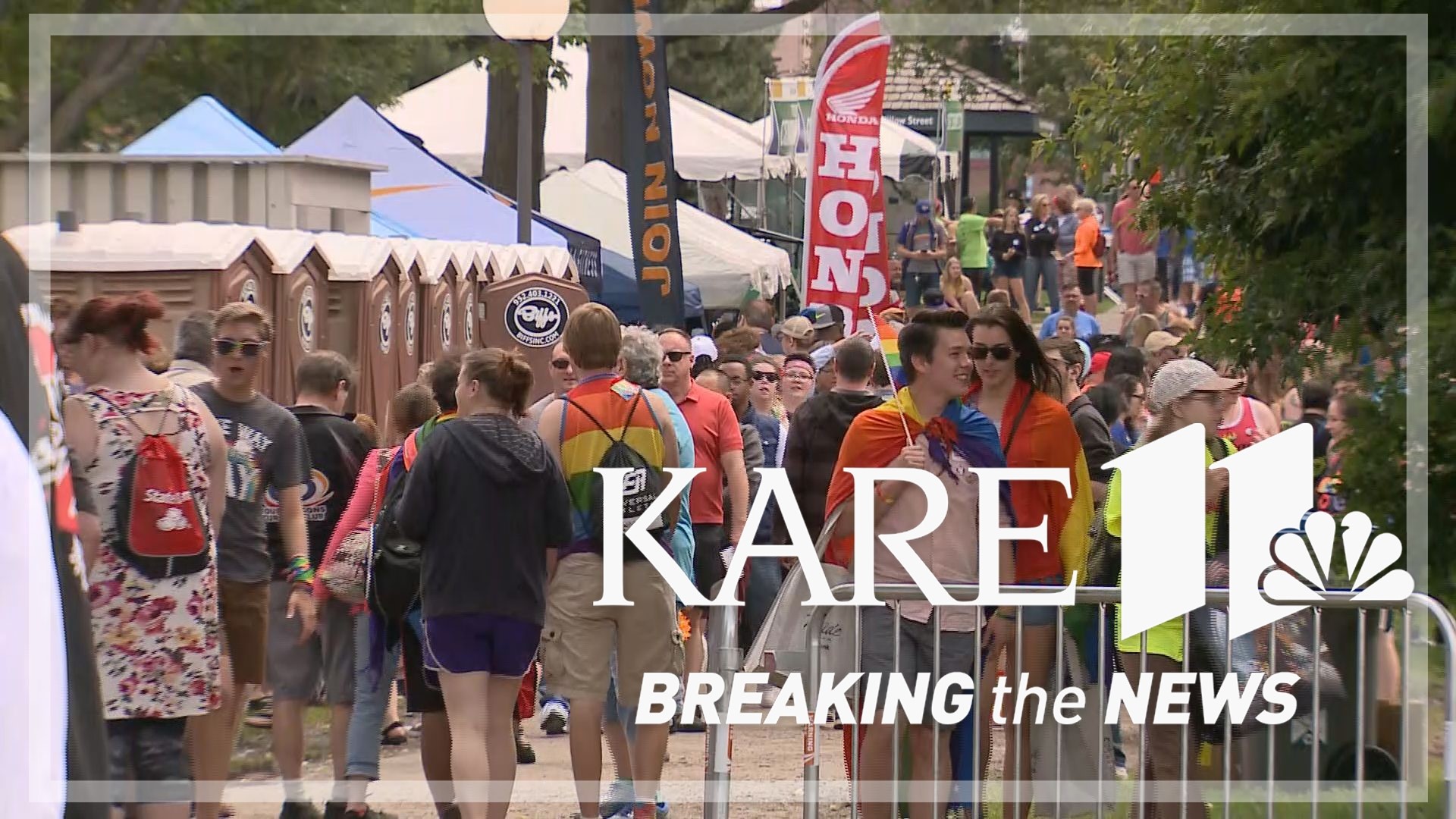MINNEAPOLIS — Twin Cities Pride is always held on the last weekend in June, and year after year, it has grown larger.
Over three days, at least half a million people are expected to participate in the celebration of love and equality. For over five decades, the celebration has been held in the Loring Park neighborhood of Minneapolis.
The event didn't always draw such large crowds, it began with hardly any people in attendance.
Twin Cities Pride Executive Director Andi Otto says this all wouldn't be possible without the people who came before him.
"It started back in 72' with a small group of people between 25 and 50," he said. "They sent half of them from Loring Park to go up Nicollet Avenue and protest for equal rights. They split the group so that if those protesters got arrested, the group in the park could go bail them out."
Throughout the years, there have been roadblocks. In 1980, the Pride Committee sued the city for the right to host a block party.
"We had the fight against the city for us to be able to be here and express ourselves freely. And then from that point in the 80s, I mean, it really kind of took off," said Otto.
In the late 1980s, Daniel Mendez found a place where he felt like he could be himself.
"A group of friends, we came to the festival and came down here and I was in awe," said Mendez.
"It was so spectacular to see an area where there were more people that I say were like me, you know."
Mendez started helping with the pride festival and eventually coordinated parades. He will be emceeing the parade this weekend.
Throughout the decades, Mendez and others rejoiced in steps toward acceptance.
"I think, for me, one of the biggest accomplishments was when they approve gay marriage," he said.
The group also grieved together.
"There was a gentleman in the 90s, a young man who was murdered because of who he was in the park," said Otto.
Joel Larson, a 21-year-old, was shot in the back in Loring Park in 1991. Otto says Pride is also a time to reflect on his death and others'.
"When the AIDS epidemic came into play, we lost our community," said Otto.
Twin Cities Pride organizers have said its history in Loring Park is rich. What's uncertain is its future.
"I don't want to leave the park," said Otto.
Otto said with growing costs and crowds, organizers are unsure if they'll be able to return next year.
"It would be bittersweet," said Mendez
"It's so important to stay here and continue the legacy in the history of Twin Cities pride here in Minneapolis," said Otto.
They say there's more work to be done so everyone in their community can be safe.
"Things have changed, but they still haven't changed enough," said Mendez.
In the coming days, they want everyone who walks the paths of this park, to live in the moment.
"When you really think about this tiny little group of people who started this, and now we're gonna see over 600,000 people in the park, I mean, it's pretty epic," said Mendez.
Watch more Breaking The News:
Watch all of the latest stories from Breaking The News in our YouTube playlist:

